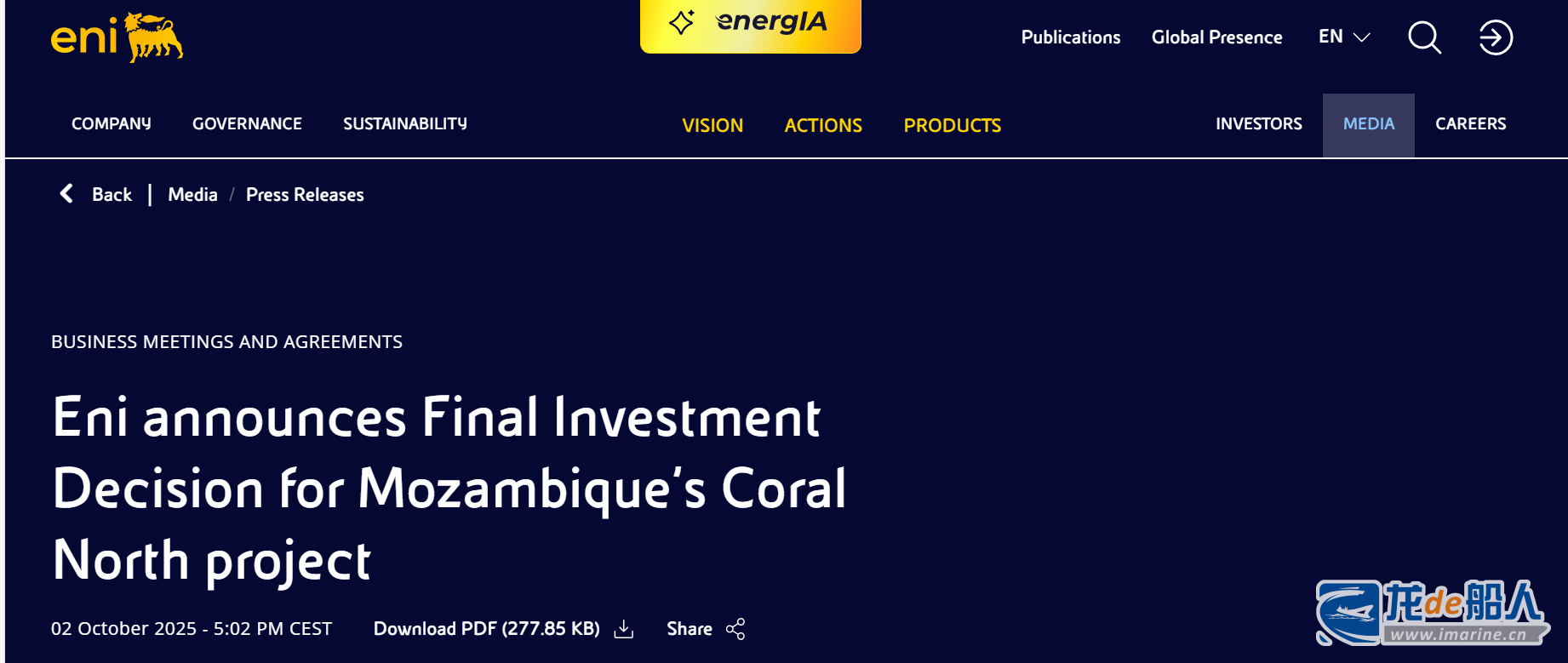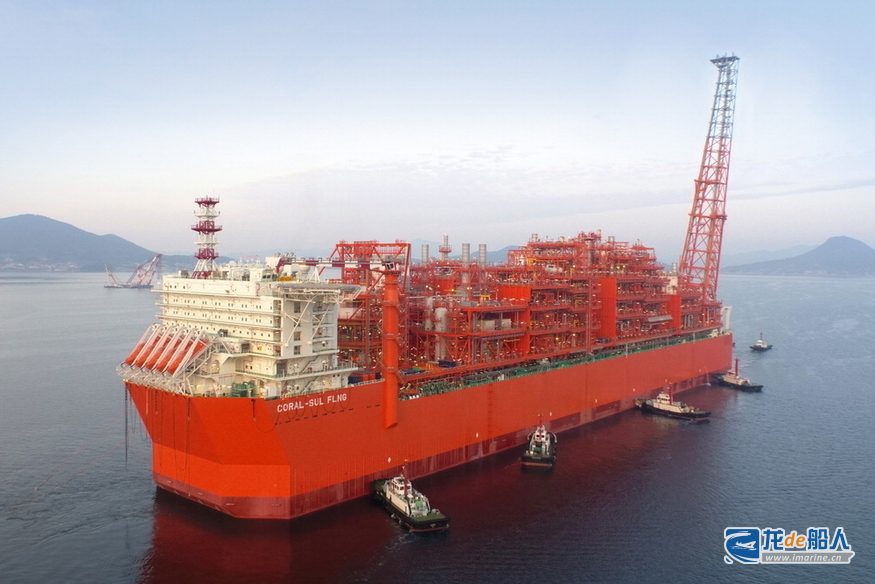Samsung Heavy Industries’ $2.5 billion FLNG order is entering the final countdown.
On October 2, Italian energy giant Eni announced on its official website that the company and its partners—China National Petroleum Corporation (CNPC), Mozambique’s state-owned oil company ENH, Korea Gas Corporation (KOGAS), and XRG, a subsidiary of Abu Dhabi National Oil Company (ADNOC)—have reached a final investment decision (FID) for the development of the Coral North FLNG project in Mozambique.

The project is being implemented by a joint venture formed by Eni (50%), CNPC (20%), KOGAS (10%), ENH (10%), and XRG (10%).
Coral North is Eni’s second development project in Mozambique. The first project, Coral South, commenced operations in 2022. Leveraging experience gained from the initial project, Coral North will demonstrate significant advantages in schedule management, cost optimization, performance enhancement, and execution risk control. The project aims to achieve on-time delivery by 2028.
The Coral North project’s proposed FLNG facility will have an annual production capacity of 3.6 million tons, making it the world’s second ultra-deepwater large-scale FLNG. Combined with the previously commissioned Coral South FLNG (annual capacity of 3.4 million tons), it will push Mozambique’s total LNG output beyond 7 million tons per year, elevating the country to Africa’s third-largest liquefied natural gas producer.

In April 2025, the Mozambican government approved the Coral North FLNG development plan. In July, Samsung Heavy Industries announced a preliminary work contract worth over $600 million for offshore production facilities with an African shipowner, with industry speculation at the time linking the project to Eni. This FID marks the imminent realization of Samsung Heavy Industries’ $2.5 billion Coral North FLNG order.
It is worth mentioning that Samsung Heavy Industries could have signed the Coral North FLNG main contract in 2024, but it was postponed until now due to the unstable regional situation.
FLNG units can perform the entire process of natural gas extraction, liquefaction, storage, and loading/unloading at sea, earning them the title of “floating LNG plants.” Compared to land-based facilities, they offer advantages such as lower investment costs, enhanced environmental sustainability, and greater mobility.
FLNG, known as an “offshore LNG plant,” can complete the entire process of natural gas extraction, liquefaction, storage, and loading and unloading at sea. Compared to onshore plants, it offers advantages such as lower investment costs, enhanced environmental friendliness, and greater mobility.
Currently, Samsung Heavy Industries has secured orders for five out of the nine FLNG units worldwide.


